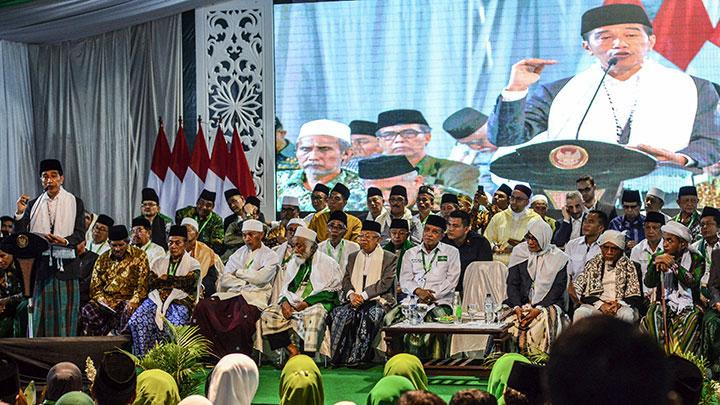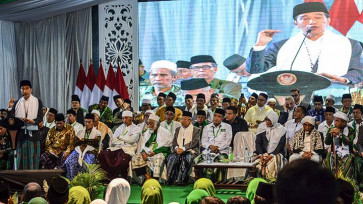Popular Reads
Top Results
Can't find what you're looking for?
View all search resultsPopular Reads
Top Results
Can't find what you're looking for?
View all search resultsNU’s policy on ‘kafir’: Not new, but important
What might feel new is NU’s urge not to use the word kafir to describe non-Muslims in public multireligious space.
Change text size
Gift Premium Articles
to Anyone
M
uslims should not have been startled by Nahdlatul Ulama’s (NU) recent call for an end to addressing non-Muslims as kafir (infidels). This opinion, arising from NU’s Bahtsul Masa’il (forum for religious problems) at its recent national conference in West Java, is not new. However, it is significantly important for the current religious state of affairs in Indonesia.
Many Muslims disapproved or even condemned NU’s appeal; yet, it does not concern the word kafir in its theological meaning, but rather its use in today’s social and national life. The accusation that NU wants to amend the Quran, which uses the word in many places, is simply a display of ignorance.
What NU was reviewing was the medieval fiqh (Islamic jurisprudence) discourse that recognized the category of kafir dhimmi, i.e. non-Muslims living in an Islamic state and entitled to the state’s obligatory protection in exchange for loyalty and payment of the specific per capita tax called jizya.
By paying jizya, non-Muslims during the caliphate era were given protection and exempted from military services, but had to accept some restrictions on their freedom of worship in the public domain, one which made them second-class citizens. Such a policy was not uncommon in medieval theocracies.
For NU, the concept of kafir dhimmi is no longer applicable in modern nation states, where all citizens are normatively equal regardless of their religion. This reasoning underpins NU’s proposal for the word muwatin (citizen) to replace it.
Much earlier, the Ottoman caliphate passed a reform edict in 1858 which revoked the dhimmi status of non-Muslims living in its vast empire.
This idea had in fact long circulated within Indonesia’s progressive Muslim discourse early in the last decade, in discussions on the Egyptian prominent thinker Fahmi Huwaidi’s 1990 book Muwatinun, La Dhimmiyyun (Citizens, not dhimmi). Huwaidi’s critiques against the pre-modern fiqh should have been easily welcomed since they simply imply a confirmation of what has been already in practice by most Muslim-majority nation states, including Indonesia since its birth, in embracing the idea of equal citizenship.


















